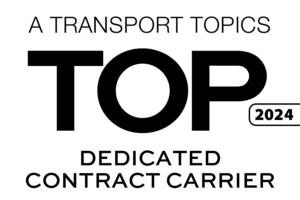 A collaboration of various branches of government regulates the transportation and logistics industry, including those at the federal, state, and local levels. Then, add into the mix numerous agencies. The industry is complex.
A collaboration of various branches of government regulates the transportation and logistics industry, including those at the federal, state, and local levels. Then, add into the mix numerous agencies. The industry is complex.
A basic understanding of how the laws and regulations come together is an important place to start to make sure you are in compliance and see how it can impact your business.
What happens at the state capitol can affect your business as much as what happens in Washington D.C. It is very important to understand how each plays a role, and how agencies weigh in the process.
Government
Federal and state governments influence the transportation industry through legislation, infrastructure spending, safety regulations, and funding. Both, the federal and the state-level government are divided into three branches:
- Legislative: Refers to Congress, which is responsible for making laws.
- Executive: Includes the President, Vice President, the Cabinet, and independent federal agencies. At the state level, this refers to the Governor. This branch is in charge of enforcing the laws.
- Judicial: Refers to the Supreme Court and federal courts, and is responsible for evaluating the laws.
Two or more of the branches collectively impact the laws that regulate the transportation and logistics industry. Ahead we will discuss how they play a role in the process.
Agencies
There are several agencies within the government that impact the transportation industry. The Department of Transportation (DOT), as the name suggests, is the primary regulatory agency for transportation in the United States. It is the largest and most recognizable agency that influences the industry.
The DOT’s mission is “to ensure America has the safest, most efficient and modern transportation system in the world, which boosts our economic productivity and global competitiveness and enhances the quality of life in communities both rural and urban.”
Within the DOT, there are 11 agencies, including the Federal Motor Carrier Safety Administration (FMCSA) and National Highway Traffic Safety Administration (NHTSA). Each plays an important role in making sure that the supply chain industry continues to run safely and efficiently.
Here is a breakdown of how FMCSA and NHTSA directly impact the logistics industry:
Federal Motor Carrier Safety Administration (FMCSA)
The FMCSA focuses on improving the safety of commercial motor carrier operations, having under their umbrella several imperative responsibilities to carry on their mission to “reduce crashes, injuries, and fatalities involving large trucks and buses.”
The FMCSA creates safety regulations for commercial motor carriers and is responsible for developing standards to test and license commercial motor vehicle drivers. This includes working directly with trucking companies to regulate Hours of Service (HOS), which was most recently updated in 2020.
The agency collaborates with groups interested in labor safety, enforcement agencies at the federal, state, and local level, and motor carriers. To support safety on the road, FMCSA also provides financial support standing behind roadside inspections and commercial motor vehicle safety programs.
National Highway Traffic Safety Administration (NHTSA)
The NHTSA focuses on reducing death, injuries, and economic losses caused by motor vehicle accidents. To carry on with its mission, the agency is invested in education, research, safety standards, and enforcement activity. Their work includes grants provided to facilitate highway safety programs, and efforts to investigate safety defects in motor vehicles.
NHTSA is responsible for enforcing vehicle performance standards and carrying on fuel economy standards. Their extensive research helps understand driver behavior and traffic safety, used to provide the most effective safety improvements in the industry.
Laws and Regulations
Whether law or regulation is implemented at a local or federal level, it can directly impact your business. Violating any of the requirements could affect your business with a penalization.
While both laws and regulations must be followed, it is important to understand where each comes from and the process from which they are created.
Laws
- Created by Congress (legislative branch).
- Begins as a proposal sponsored by a member of the Senate or House of Representatives – also known as a bill.
- The bill must undergo an extensive approval process and be approved by both chambers of Congress before getting to the hands of the President.
- The process involves a lot of back-and-forths, making it difficult for most bills to be enacted as laws.
Regulations
- Created by federal agencies (executive branch), and understood as rules.
- Rulemaking is a simpler process than enacting a law.
- The process begins with a federal agency proposing the rule to the Federal Register. Then, the agency gathers public input and analyzes the feedback received.
- Based on the results, if needed, the rule is altered. Ultimately, the Final Rule is published in the Federal Register and it goes into effect.
Policymaking is directly impacted by public opinion, and the input from logistics professionals is relevant and imperative for decision-makers.
To ensure there is an open line of communication and educated feedback, trade associations, supply chain councils, and privately owned businesses work together to engage with government agencies on behalf of those in the logistics business industry directly affected by the laws and regulations. This includes shippers, carriers, and other supply chain professionals.
Some of the well-known transportation trade associations to be familiar with are:
- American Society of Transportation & Logistics, Inc. (ASTL)
- Council of Supply Chain Management Professionals (CSCMP)
- Here is a comprehensive list of associations in the industry.
Find the right partner and do it the right way
Understanding how to navigate through laws and regulations that affect the supply chain industry is imperative to succeed in the business.
Associating yourself and your business with a company that knows every detail and is up to date on changes is detrimental to your success. Partner with the right third-party logistics company to succeed in an ethical and safe way.

